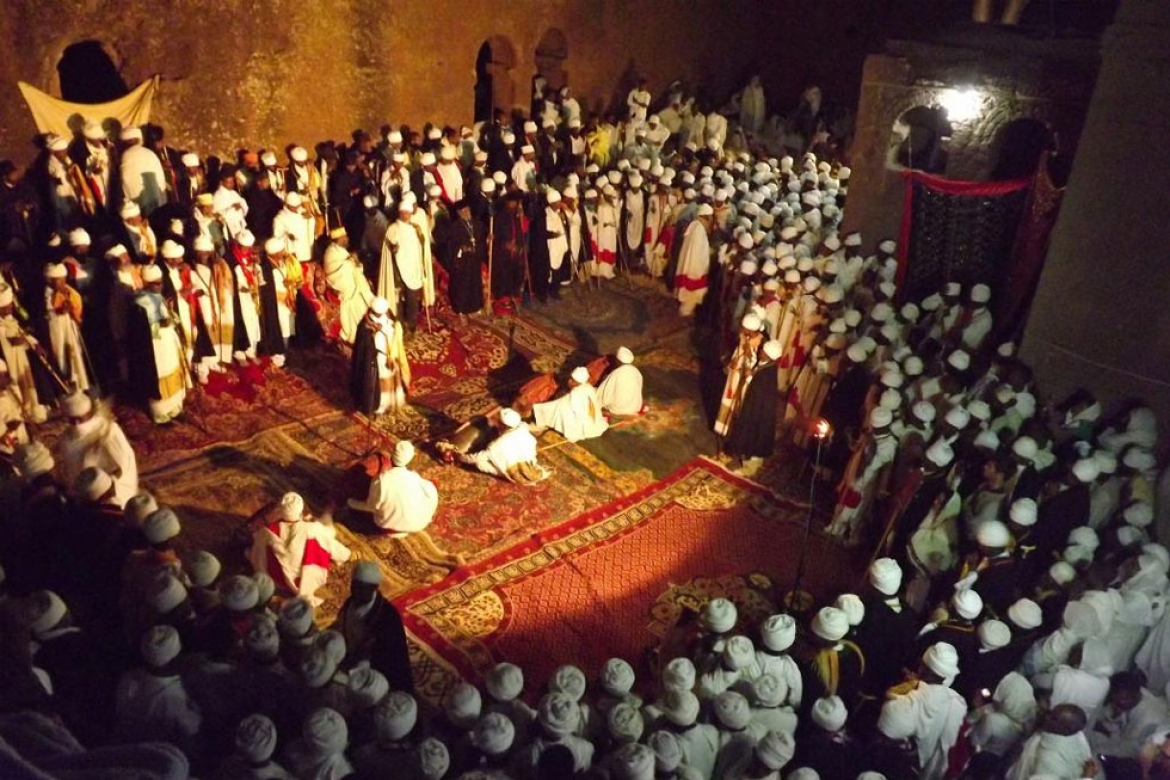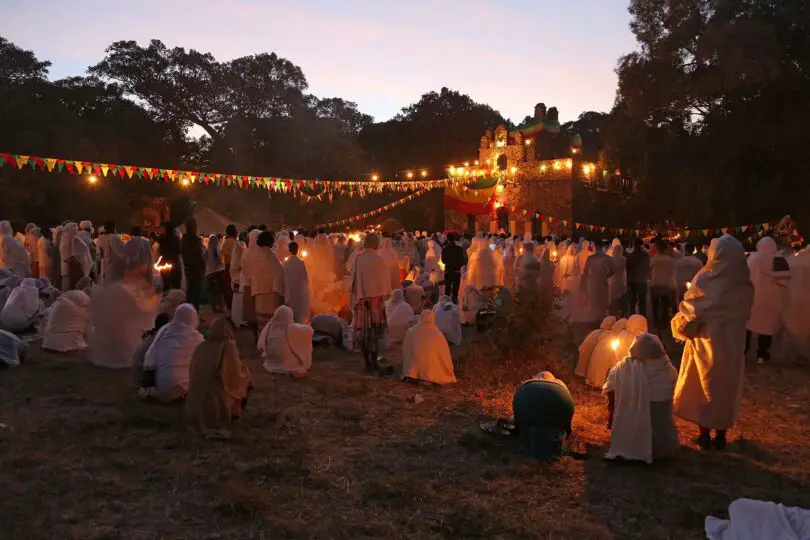December 25 is synonymous with the Christmas holidays in many countries around the world. Surprisingly, Ethiopia Christmas 2023 is on January 7.
Weird and unbelievable it is. Many people do not understand why it is not celebrated on December 25th like in many other countries. Here’s the thing. The Ethiopian calendar is different and Christmas is a time for fasting and reflection for many people.
Ironically, it is a feasting and thanksgiving period for scores of people who celebrate this holiday.
Table of Contents
Why Is Ethiopian Christmas On January 7?
Ethiopian Christmas 2023, also known as Ganna, is celebrated on January 7. This is because the Ethiopian Orthodox Church uses the Julian calendar, which is 13 days behind the Gregorian calendar, which is widely used worldwide.
Julius Caesar initially introduced the Julian calendar in 45 BCE, and it was used for many centuries before being replaced by the Gregorian calendar in the 16th and 17th centuries.

Ethiopian Christmas. Photo by Liyu Ethiopia Tours
Moreover, the Julian calendar is still used by some Eastern Orthodox churches, including the Ethiopian Orthodox Church, and other religious groups. Due to the difference between the two calendars, the date of Ethiopian Christmas falls on January 7 on the Gregorian calendar.
Overall, the celebration of Ethiopian Christmas is an important part of the cultural and religious traditions of Ethiopia, and it is a time for fasting, reflection, and celebration for many people.
How Do They Celebrate Christmas In Ethiopia?
Another exciting aspect of Ethiopian Christmas 2023 is that it is a time for fasting and reflection for many people. During the weeks leading up to Ganna, many people abstain from certain foods and activities in order to prepare for the holiday.
On the day of the holiday itself, there are often special church services and celebrations, including singing hymns and exchanging small gifts. Many people attend special church services, characterized by singing hymns and reading biblical passages.
While some people exchange small gifts and spend time with family and friends, others let the day pass quietly as they reflect. It is a sign of celebrating and honouring their faith.
Do They Have Christmas In Ethiopia?
Yes, Christmas is celebrated in Ethiopia. It is known as Ganna in the Ethiopian language and is celebrated on January 7 by the Ethiopian Orthodox Church.
Ethiopian Christmas is an important cultural and religious holiday in Ethiopia, and it is a time for people to come together, celebrate, and honor their faith.
How Does Ethiopia Say Merry Christmas?
In Ethiopia, people typically say “Merry Christmas” in Amharic, which is the official language of Ethiopia. In Amharic, “Merry Christmas” is translated as “Melkam Ganna,” which can be written as መልካም ጋና. That’s interesting to learn about Ethiopia Christmas 2023.
Some other common ways to say “Merry Christmas” in Amharic include “Melkam Ganna Fikir” (መልካም ጋና ፍቅር) and “Ganna Lidet” (ጋና ልደት).
Ideally, Christmas is an important holiday in Ethiopia, and it is a time for people to come together, celebrate, and honor their faith.
What Do Ethiopians Eat On Christmas?
There are many traditional foods to enjoy during Ethiopia Christmas 2023 holiday. Some common dishes you will eat include the following.
- Doro wat: A spicy chicken stew that is often served with injera (a type of flatbread)
- Tibs: Grilled or fried pieces of meat, often served with vegetables
- Kitfo: Finely minced raw meat that is seasoned with spices and served with bread or injera
- Doro tibs: Grilled chicken served with vegetables
- Kitfo leb leb: A spicy version of kitfo that is served with bread or injera

Ethiopian Christmas. Photo by The New York Times
Other traditional foods that are served during Ethiopian Christmas are different types of bread, stews made with lentils or beans, and a variety of vegetable dishes. In addition to these savoury dishes, many sweet treats are enjoyed during the holiday season, such as cakes, cookies, and pastries.
Food is an important part of the celebration of Ethiopian Christmas, and many people enjoy sharing meals and treats with family and friends during this time.
Why Is Ethiopia 7 Years Behind?
The Ethiopian calendar is based on the ancient Egyptian calendar, which is itself based on the lunar cycle. One year in the Ethiopian calendar equals twelve 30-day months, with a 13th month of 5 or 6 days added every four years to synchronize the calendar with the solar cycle.
This 13th month is not included in the calendars of other countries, which are based on the solar cycle. So, this places the Ethiopian calendar 7 to 8 years behind the Gregorian calendar, which is the most widely used civil calendar in the world. The discrepancy between the two calendars grows over time, with the Ethiopian calendar adding an extra day approximately every four years.








